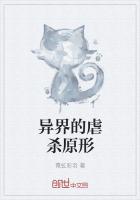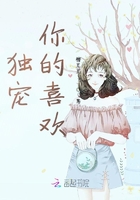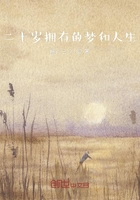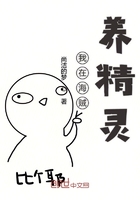NEXT DAY when Prince Andrey thought of the ball it did not occupy his mind for long. “Yes, it was a very successful ball. And besides…yes, the younger Rostov is very charming. There’s something fresh in her, original, unlike Petersburg.” That was all he thought about the previous day’s ball, and after his morning tea he set to work.
But from fatigue and want of sleep he was not very well disposed for work, and could get nothing done. He was continually criticising his own work—a habit common with him—and was glad when he heard a visitor arrive.
The visitor was Bitsky, a man who was a member of various committees and of all the societies in Petersburg. He was a passionate adherent of the new ideas and of Speransky, and the busiest purveyor of news in Petersburg, one of those men who choose their opinions like their clothes—according to the fashion—but for that very reason seem the most vehement partisans. Scarcely waiting to remove his hat, he ran fussily up to Prince Andrey, and at once began talking. He had just learned particulars of the sitting of the State Council of that morning, opened by the Tsar, and began enthusiastically upon the subject. The Tsar’s speech had been, he said, an extraordinary one. It had been a speech such as are only delivered by constitutional monarchs. “The Emperor directly asserted that the Council and the Senate are the estates of the realm; he said that government should be founded not on arbitrary authority, but on a secure basis. The Emperor said that the fiscal system must be reconstituted and the accounts must be public,” Bitsky announced, laying stress on certain words, and opening his eyes significantly. “Yes, to-day’s sitting marks an epoch, the greatest epoch in our history,” he concluded.
Prince Andrey heard his account of the opening of the State Council, to which he had been looking forward with such eagerness, and to which he had attached so much consequence, and was amazed that now, when it had come to pass, this event, far from affecting him, struck him as less than insignificant. With quiet irony he listened to Bitsky’s enthusiastic description. The idea in his mind was of the ******st. “What is it to me and Bitsky,” he thought, “what is it to us, whatever the Emperor is pleased to say in the Council? Can all that make me any happier or better?”
And this ****** reflection suddenly destroyed all Prince Andrey’s former interest in the reforms that were being made. That day Prince Andrey was to dine with Speransky, “with only a few friends,” as the host had said in inviting him. That dinner, in the intimate home circle of the man who had so fascinated him, had seemed very attractive to Prince Andrey, especially as he had not hitherto seen Speransky in his home surroundings. But now he had no wish to go to it.
At the hour fixed, however, Prince Andrey was entering the small house in Tavritchesky Garden. The little house, which was Speransky’s property, was distinguished by an extraordinary cleanliness, suggestive of the cleanliness of a convent. In the parqueted dining-room, Prince Andrey, who was a little late, found all that circle of Speransky’s intimate friends already gathered together at five o’clock. There were no ladies present, except Speransky’s little daughter (with a long face like her father’s) and her governess. The guests were Gervais, Magnitsky and Stolypin. From the vestibule Prince Andrey had caught the sound of loud voices and a ringing, staccato laugh—a laugh such as one hears on the stage. Some one—it sounded like Speransky—was giving vent to a staccato “ha…ha…ha…” Prince Andrey had never before heard Speransky laugh, and this shrill, ringing laugh from the great statesman made a strange impression on him.
Prince Andrey went into the dining-room. The whole party were standing between the two windows at a little table laid with hors d’?uvres. Speransky was standing at the table with a mirthful countenance, wearing a grey frock coat with a star, and the white waistcoat and high white stock, in which he had been at the famous sitting of the State Council. His guests formed a ring round him. Turning towards him Magnitsky was relating an anecdote. Speransky listened, laughing beforehand at what Magnitsky was going to say. Just as Prince Andrey walked into the room, Magnitsky’s words were again drowned in laughter. Stolypin gave vent to a bass guffaw as he munched a piece of bread and cheese. Gervais softly hissed a chuckle, and Speransky laughed his shrill, staccato laugh.
Speransky, still laughing, gave Prince Andrey his soft, white hand. “Very glad to see you, prince,” he said. “One minute…” he turned to Magnitsky, whose tale he was interrupting. “We have made a compact to-day; this is a holiday dinner, and not one word about business.” And he turned again to the story-teller, and again he laughed.
With a sense of wondering and melancholy disillusion, Prince Andrey heard his laughter and looked at Speransky laughing. It was not Speransky, but some other man, it seemed to Prince Andrey. All that had seemed mysterious and attractive in Speransky suddenly seemed to Prince Andrey obvious and unattractive.















